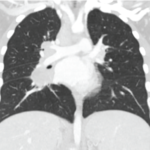As COVID-19 case counts fade from the headlines and people return to their pre-pandemic routines, rheumatologists and rheumatology professionals may be wondering what “the end” of COVID-19 is going to look like for them. Much of that answer lies in the status of the federal emergencies that have been declared in response to COVID-19. These…






